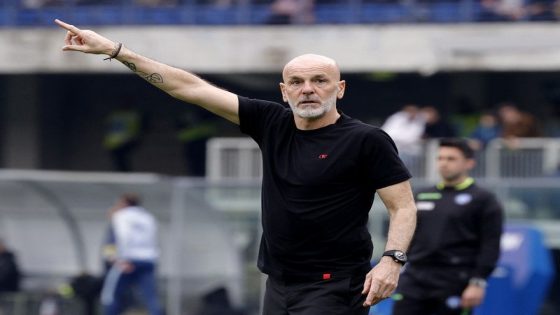Israel Prime Minister Benjamin Netanyahu on Monday announced that the ongoing military operation against Hamas in Gaza is nearing its end. However, he suggested that this development would allow Israel to redeploy some of its troops to the northern border to strengthen its defenses against the Lebanese militant group Hezbollah.
In an interview with Israel’s Channel 14, Netanyahu said that while the Israeli army is nearing the completion of its ground offensive in the southern Gaza city of Rafah, the conflict with Hamas is not over.He indicated that fewer troops would be needed in Gaza, allowing for a shift of forces to the north to bolster defenses against Hezbollah.
“We will have the possibility of transferring some of our forces north, and we will do that,” Netanyahu said during the interview, which was frequently interrupted by applause from the studio audience. “First and foremost, for defense,” he added, but also to facilitate the return of tens of thousands of displaced Israelis to their homes.
Hezbollah, supported by Iran, began attacking Israel shortly after Hamas’s cross-border raid on October 7, which triggered the current Gaza conflict. The exchanges of fire between Israel and Hezbollah have intensified recently, raising fears of a full-scale war involving other Iranian-backed groups.
US envoy Amos Hochstein visited the region last week in an effort to de-escalate the situation, but hostilities continue. Netanyahu expressed hope for a diplomatic solution but stressed that Israel is prepared for a multi-front war if necessary.
Netanyahu mentioned that any agreement with Hezbollah would require their withdrawal from the border, an enforcement mechanism, and the return of displaced Israelis. Hezbollah’s leader, Hassan Nasrallah, has recently highlighted the group’s enhanced capabilities, including new weapons capable of striking deeper into Israel.
Netanyahu reiterated his desire for a diplomatic resolution but vowed to address the issue “in a different way” if needed. “We can fight on several fronts and we are prepared to do that,” he stated.
In response to the potential threat, Israel has showcased some of its military capabilities and warned that Lebanon could face severe consequences if war erupts. The Israeli army has approved a new plan for an offensive in Lebanon, should the situation escalate further.
Netanyahu confirmed that operations in Rafah are winding down, with significant damage inflicted on Hamas. However, he emphasized that Israel would continue targeted strikes to prevent Hamas from regrouping.
Israel’s air and ground invasion of Gaza commenced immediately following Hamas’s October 7 attack, which resulted in the deaths of approximately 1,200 people and the capture of about 250 others.
The ongoing Israeli offensive has led to the deaths of over 37,000 Palestinians, caused a severe humanitarian crisis, and sparked war crimes and genocide investigations at the world’s top courts in The Hague.
Netanyahu criticized the reduction in US arms shipments, which President Biden delayed over concerns of civilian casualties. Despite international calls for a cease-fire, Netanyahu insists that the war will continue until all hostages are released and Hamas’s military capabilities are destroyed.
“The current phase of the war is about to end,” Netanyahu said. “That doesn’t mean the war is about to end.”
American officials have been pressing Netanyahu to outline a clear post-war plan for Gaza. The US has stated it will not support a long-term Israeli occupation of the territory.
Netanyahu proposed maintaining military control over Gaza to ensure Israel’s security. “There is no one else” capable of doing that, he said, while seeking to establish a Palestinian “civilian administration” for managing day-to-day affairs in Gaza with support from moderate Arab countries. He ruled out involving the Palestinian Authority, which was ousted from Gaza by Hamas in 2007.
Netanyahu also dismissed the idea of re-settling Israelis in Gaza, a notion favored by some of his ultranationalist allies. Israel ended its 38-year presence in Gaza in 2005. “The issue of settlement is not realistic,” he said. “I’m realistic.”
In an interview with Israel’s Channel 14, Netanyahu said that while the Israeli army is nearing the completion of its ground offensive in the southern Gaza city of Rafah, the conflict with Hamas is not over.He indicated that fewer troops would be needed in Gaza, allowing for a shift of forces to the north to bolster defenses against Hezbollah.
“We will have the possibility of transferring some of our forces north, and we will do that,” Netanyahu said during the interview, which was frequently interrupted by applause from the studio audience. “First and foremost, for defense,” he added, but also to facilitate the return of tens of thousands of displaced Israelis to their homes.
Hezbollah, supported by Iran, began attacking Israel shortly after Hamas’s cross-border raid on October 7, which triggered the current Gaza conflict. The exchanges of fire between Israel and Hezbollah have intensified recently, raising fears of a full-scale war involving other Iranian-backed groups.
US envoy Amos Hochstein visited the region last week in an effort to de-escalate the situation, but hostilities continue. Netanyahu expressed hope for a diplomatic solution but stressed that Israel is prepared for a multi-front war if necessary.
Netanyahu mentioned that any agreement with Hezbollah would require their withdrawal from the border, an enforcement mechanism, and the return of displaced Israelis. Hezbollah’s leader, Hassan Nasrallah, has recently highlighted the group’s enhanced capabilities, including new weapons capable of striking deeper into Israel.
Netanyahu reiterated his desire for a diplomatic resolution but vowed to address the issue “in a different way” if needed. “We can fight on several fronts and we are prepared to do that,” he stated.
In response to the potential threat, Israel has showcased some of its military capabilities and warned that Lebanon could face severe consequences if war erupts. The Israeli army has approved a new plan for an offensive in Lebanon, should the situation escalate further.
Netanyahu confirmed that operations in Rafah are winding down, with significant damage inflicted on Hamas. However, he emphasized that Israel would continue targeted strikes to prevent Hamas from regrouping.
Israel’s air and ground invasion of Gaza commenced immediately following Hamas’s October 7 attack, which resulted in the deaths of approximately 1,200 people and the capture of about 250 others.
The ongoing Israeli offensive has led to the deaths of over 37,000 Palestinians, caused a severe humanitarian crisis, and sparked war crimes and genocide investigations at the world’s top courts in The Hague.
Netanyahu criticized the reduction in US arms shipments, which President Biden delayed over concerns of civilian casualties. Despite international calls for a cease-fire, Netanyahu insists that the war will continue until all hostages are released and Hamas’s military capabilities are destroyed.
“The current phase of the war is about to end,” Netanyahu said. “That doesn’t mean the war is about to end.”
American officials have been pressing Netanyahu to outline a clear post-war plan for Gaza. The US has stated it will not support a long-term Israeli occupation of the territory.
Netanyahu proposed maintaining military control over Gaza to ensure Israel’s security. “There is no one else” capable of doing that, he said, while seeking to establish a Palestinian “civilian administration” for managing day-to-day affairs in Gaza with support from moderate Arab countries. He ruled out involving the Palestinian Authority, which was ousted from Gaza by Hamas in 2007.
Netanyahu also dismissed the idea of re-settling Israelis in Gaza, a notion favored by some of his ultranationalist allies. Israel ended its 38-year presence in Gaza in 2005. “The issue of settlement is not realistic,” he said. “I’m realistic.”
Source Agencies




